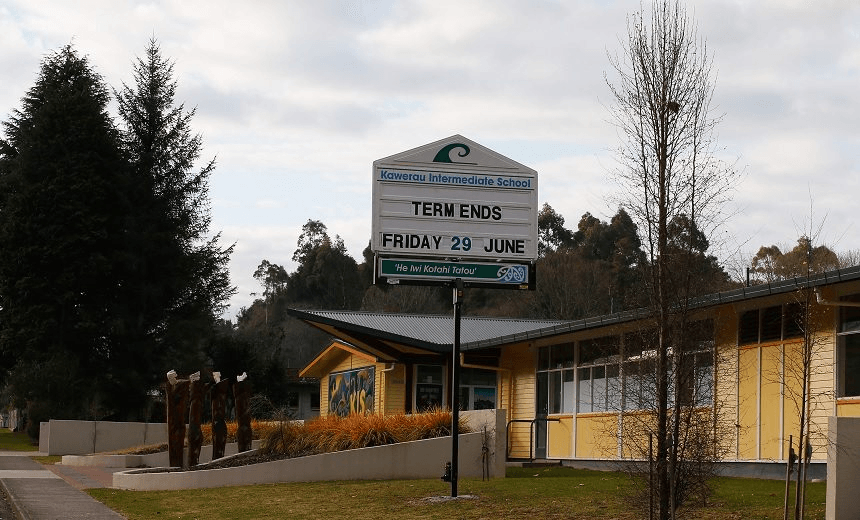In an ideal world the physical lives we build would speak to the past, but the truth is New Zealanders silence it, building their social and industrial histories literally on top of Māori.
Read more Lockdown letters here.
“The past is a foreign country,” goes the famous opening line from The Go-Between, but for tangata whenua – or at least the tangata whenua in Kawerau, my home – does the past exist when new memories and new lives are literally built on top of ancestral memories and ancestral lives? Six feet beneath Tasman Mill’s waste treatment centre are the bones of the very earliest Māori inhabitants, the first people to set foot in this part of the world. But who remembers that any more? I’m thinking about this as I cut back the creepers in Nan’s back garden.
In an ideal world the physical lives we build would speak to the past, but the truth is New Zealanders silence it, building their social and industrial histories literally on top of Māori. This is as true for Kawerau as it is for Auckland. Even today precious historical sites – think of Ihumātao – are meant to make way for current needs as developers, just like Tasman did in Kawerau in 1952, put the promise of future wealth ahead of the preservation of a richer pre-colonial history.
I’m composting Nan’s overripe grapes and thinking: what happens when a community loses its past? For many: incoherence. What the country knows of Kawerau, if anything at all, are terrifying suicide rates, dramatic gang fights and welfare dependency. For locals, especially those who moved here in “the fabulous 50s”, the decade the first steel frames went up at Tasman, what they know of their home is prosperity, community, and maybe John Rowles. Tangata whenua remember Tūwharetoa and more.
But in the gap between what is and what was is a haunting sense of loss. This is especially acute in Kawerau, a town that was, in the latter half of the 20th century, perhaps more important to the country’s prosperity than any other. In 1960 the mill put more than 2000 people to work and was responsible for producing more than 20% of the country’s exports. Trains would carry logs and newsprint to the Port of Tauranga, trucks would transport tissue to suppliers across the country and, with the money from it all, local families were comfortable and secure.
Until they weren’t.
As the fourth Labour Government took power in 1984 the neoliberals removed export subsidies and “opened” the economy to overseas competition, meaning Tasman lost its privileged market position. Over the next ten years almost one thousand people were put out of work. Homes were sold, small business owners shut up shop, sports clubs closed and school rolls plummeted. As soon as you step outside your locked down home you can spot the consequences – the housing stock in an advanced state of decay, the bulldozed school making way for a subdivision that’s ten years too late.
Today, if you walk along “the promenade” in town nearly every second shop is boarded up, paint is peeling off the old Freemason’s lodge and the RSA is on its last legs. Without its industrial heart, there was little the town could do. Volcanic soil and temperature extremes – blisteringly hot in summer, frost-covered in winter – make agriculture comparatively tough. I’m still in the garden and we’re in the mid-20s. In April. In autumn.
The cruel irony, I realise as I’m admiring the neat stack in the wood shed, is you can build over the top of the town’s old industrial history just as it was built over the top of an earlier Māori history. The new subdivision, a sign of how far we’ve fallen rather than how far we’ve come, built right over the top of a formerly thriving school. “I have lived for the last month [with] the sense of having suffered a vast and indefinite loss,” wrote the American ‘transcendentalist’ Henry David Thoreau in 1854. “I did not know at first what ailed me. At last it occurred to me that what I had lost was a country.”
I think I feel that, in the backyard of all places, when I think about all the different histories disappearing under our feet.
